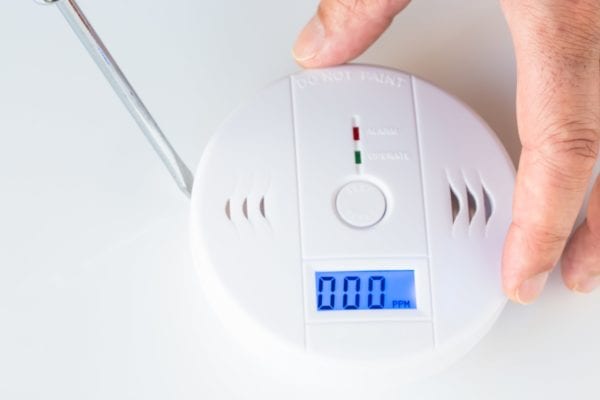Carbon monoxide is an odorless, colorless, tasteless gas that is completely undetectable to humans without technology. It’s produced anytime something is burned and can occur from faulty venting in heating systems or by using heaters designed for outdoor-use only inside the home. That’s frightening to think about, especially when the deaths that occur due to carbon monoxide exposure are preventable with the installation of a simple alarm. So, when it comes to rental properties, are landlords required to install carbon monoxide detectors?

Long Story Short…
Requirements vary by state, and in Colorado, the answer is a resounding “yes!” Landlords are required to provide functioning smoke and carbon monoxide detectors throughout the property. Carbon monoxide detectors are required to be within 15 feet of every bedroom or sleeping area, one on each level of the home, and within 25 feet of any fuel-burning appliances.
Who’s Responsible for the Carbon Monoxide Detectors?
While landlords in Colorado are required to install functioning smoke and CO detectors, there are some responsibilities that go to the tenants as well. For example, your lease may require tenants to change the batteries and test all detectors throughout the home and alert the landlord in the event that one is not working properly. They’re the ones living there day to day, after all. That being said, it’s always better to err on the side of caution and test them while you’re on site as well. If you notice the batteries need to be changed, change them. You can always remind the tenants to double check them throughout the lease later. As the wise old saying goes, it’s better to be safe than sorry.
Whether required by law or not, installing carbon monoxide detectors in your rental is a relatively small price to pay for peace of mind. It keeps your tenants safe and prevents landlords from incurring any liability in the event a death occurs as a result of CO poisoning.





